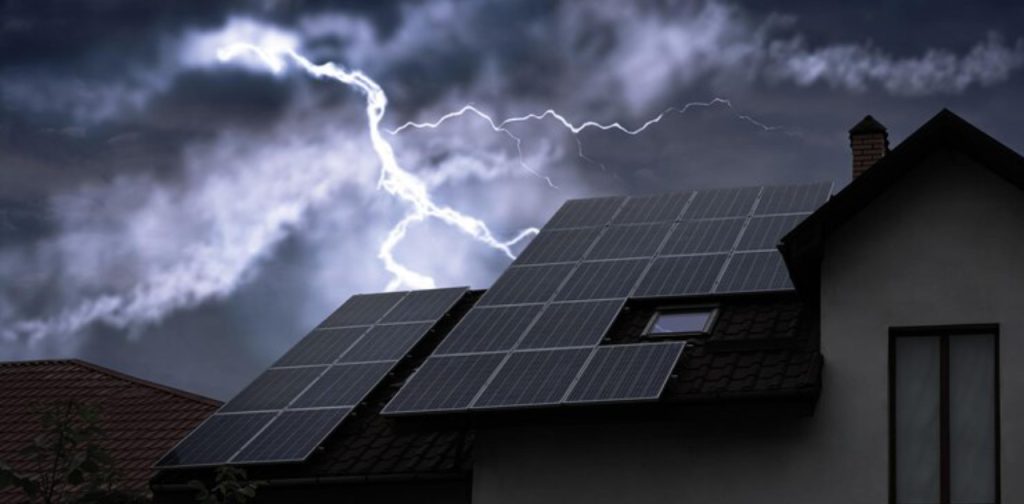Solar power systems, like any other electrical installations, can indeed be affected by lightning. This article will delve into the potential impacts of lightning on solar setups and discuss measures to mitigate these risks, focusing on lightning protection for solar panels.
Lightning and Solar Panels Lightning is a powerful natural phenomenon that can cause significant damage to electrical systems. When a lightning bolt strikes, it seeks the path of least resistance to the ground, which can often be through electrical conductors. Given that solar panels are typically mounted on rooftops and connected to the home’s electrical system, they can be vulnerable to lightning strikes, emphasizing the need for solar panel lightning protection.
Potential Damage If a lightning bolt strikes a solar panel directly, it can cause severe damage, potentially destroying the panel. The high voltage can also travel through the panel’s wiring, damaging the inverter and other connected equipment. In some cases, a lightning strike can even cause a fire. This underscores the importance of understanding how to protect solar panels from lightning.
Lightning Protection for Solar Panels The good news is that there are ways to protect solar setups from lightning. Here are some key strategies:
- Lightning Rods: These are metal rods installed on the roof that attract lightning and safely direct it to the ground, protecting the solar panels and other structures.
- Surge Protectors: These devices protect the electrical equipment connected to the solar panels by blocking or shorting to ground any voltage spikes caused by a lightning strike.
- Grounding: Proper grounding of the entire solar power system is crucial. It provides a path for the lightning to reach the ground without passing through the solar panels or other electrical equipment.
- Lightning Arrestors for Solar Panels: These devices can be installed to protect the system from lightning-induced surges.
- Professional Installation: Ensuring that the solar power system is professionally installed and regularly inspected can help identify and rectify any potential issues that could increase the risk of lightning damage.
Conclusion
While lightning can potentially damage solar setups, proper protection measures can significantly reduce this risk. By investing in lightning protection and ensuring professional installation and maintenance, solar panel owners can safeguard their investment and ensure the longevity and efficiency of their solar power system. This includes protecting solar panels from lightning strikes to maintain optimal performance.





